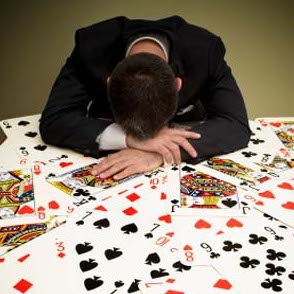Talk with an Abilify and Compulsive Gambling Lawyer Today. If you suffer from impulse control issues to exhibit compulsive behavior and also take Abilify, give us a call today. The legal team at Gacovino, Lake & Associates, P.C. Can help you understand the validity of your case, and explain your legal options for compensation. The Mississippi Council on Problem and Compulsive Gambling is dedicated to helping the community respond to those individuals and their families devastated by addictive gambling. If you or someone you know has a gambling problem, please call our toll-free help line at 1-888-777-9696. All calls are strictly confidential. If you or someone you love is experiencing a gambling addiction, help and information are available at our 24-hour, toll-free Washington Helpline: call or text 1-800-547-6133, or chat with a Helpline specialist here. Louisiana Association on Compulsive Gambling 1325 Barksdale Blvd. Bossier City, LA 71111 Tel:(318) 227-0883 Fax:(318) 221-0005 Helpline: 1-877-770-STOP. If gambling is causing a problem in your life we encourage you to ask questions, gather information and conduct research on the type of help that is most appropriate for your situation. This information is intended to be a starting point—it is not a complete list of information or services.
- Compulsive Gambling Chat Rooms
- Compulsive Gambling Addiction
- Compulsive Gambling Causes
- Compulsive Gambling Therapy
- Compulsive Gambling Help
Florida
If gambling is causing a problem in your life we encourage you to ask questions, gather information and conduct research on the type of help that is most appropriate for your situation. This information is intended to be a starting point—it is not a complete list of information or services.
FIND HELP IN YOUR STATE NOW, including counseling, treatment, self-help and support groups:
National Problem Gambling Helpline
Call: 1-800-522-4700
Text: 1-800-522-4700
Chat: ncpgambling.org/chat
and
Florida Council on Compulsive Gambling
P.O. Box 2309
Sanford, FL 32772
Tel: 407.865.6200
Fax: 407.865.6103
Email: fccg@gamblinghelp.org
Website: www.gamblinghelp.org
Helpline: 888-ADMIT-IT (236-4848)
Text: 321-978-0555 (24/7)
Live Chat: www.gamblinghelp.org (24/7)
OTHER STATE RESOURCES
• Florida Department of Health is responsible for general health and/or addiction services in this state, and may also have information on problem gambling.
• For the fact sheet on gambling and problem gambling in Florida, click here.
Self Help Resources
• Gamblers Anonymous (www.gamblersanonymous.org)
Is fellowship of men and women who share their experience, strength and hope with each other that they may solve their common problem and help others to recover from a gambling problem.
• Gam-Anon (www.gam-anon.org)
Is a self-help organization for the spouse, family or close friends of compulsive gamblers.
• GamTalk (www.gamtalk.org)
Is a 24/7 moderated online peer support forum.
SCREENING TOOLS
Please visit our Screening Tools page to access three problem gambling assessment tools. It is important to note that these screens are not a diagnosis and DO NOT replace a face-to-face evaluation with a trained clinical professional.
• The Brief Biosocial Gambling Screen (BBGS). A 3-item survey designed to help people decide on their own whether to seek a formal evaluation of their gambling behavior.

• DSM-5 Addictive Gambling Criteria. The American Psychiatric Association guidelines used for the medical diagnosis of addictive gambling.
• NORC Diagnostic Screen for Gambling Problems. This simple self test will help you to evaluate your gambling behavior. Just answer 10 questions adapted from the DSM IV criteria.
Compulsive Gambling Chat Rooms
OTHER TREATMENT RESOURCES
• Certified Gambling Counselor Directory
Compulsive Gambling Addiction
• Treatment Facility List
Compulsive Gambling Causes
ADDITIONAL RESOURCES
In addition to the resources listed above, there are many additional resources for problem gamblers throughout the National Council on Problem Gambling site.
Compulsive Gambling Therapy
• Resources page pulls together information and links about our State Affiliates, U.S. and international resources, awareness promotion, state problem gambling services, financial issues, and much more.
Compulsive Gambling Help
• Celebrate & Inspire – In order to get beyond the statistics and provide a more personal and individual picture of this issue, this section features the stories of individuals who have been affected by problem gambling, including problem gamblers and their family members, friends, colleagues and employers; treatment providers; advocates; and any others.